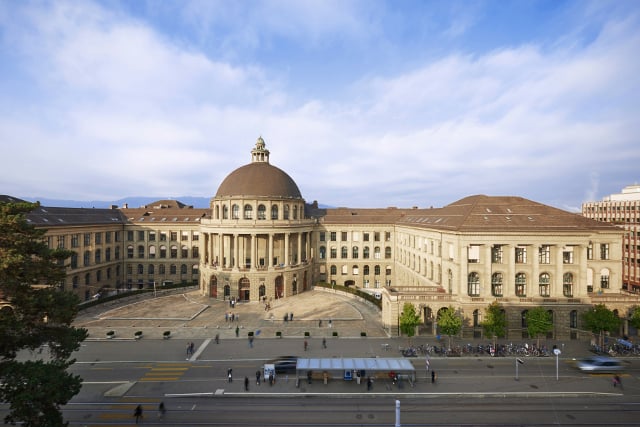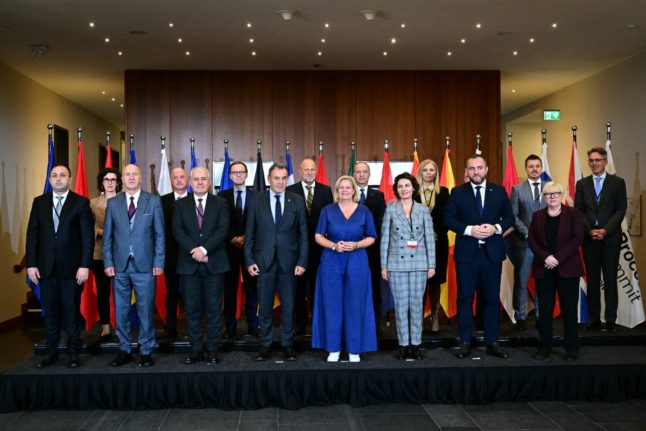With the German far right coming out on top in two state elections earlier this month, the socialist-led national Berlin government has reimposed border controls on Western frontiers that are supposed to see freedom of movement in the European Union’s Schengen zone.
The Netherlands government, which includes the party of Dutch far-right leader Geert Wilders, announced Wednesday that it had requested from Brussels an opt-out from EU rules on asylum, with Prime Minister Dick Schoof declaring that there was an asylum “crisis”.
Meanwhile, new British Prime Minister Keir Starmer of the left-wing Labour Party paid a visit to Rome for talks with Italian counterpart Georgia Meloni, whose party has neo-fascist roots, to discuss the strategies used by Italy in seeking to reduce migration.
Far-right parties performed strongly in June European elections, coming out on top in France, prompting President Emmanuel Macron to call snap elections which resulted in right-winger Michel Barnier, who has previously called for a moratorium on migration, being named prime minister.
We are witnessing the “continuation of a rightward shift in migration policies in the European Union,” said Jerome Vignon, migration advisor at the Jacques Delors Institute think-tank.
It reflected the rise of far-right parties in the European elections in June, and more recently in the two regional elections in Germany, he said, referring to a “quite clearly protectionist and conservative trend”.
Strong message
“Anti-immigration positions that were previously the preserve of the extreme right are now contaminating centre-right parties, even centre-left parties like the Social Democrats” in Germany, added Florian Trauner, a migration specialist at the Vrije Universiteit Brussel, the Dutch-speaking university in Brussels.
While the Labour government in London has ditched its right-wing Conservative predecessor administration’s plan to send asylum seekers to Rwanda, there is clearly interest in a deal Italy has struck with Albania to detain and process migrants there.
Within the European Union, Cyprus has suspended the processing of asylum applications from Syrian applicants, while laws have appeared authorising pushbacks at the border in Finland and Lithuania.
Under the pretext of dealing with “emergency” or “crisis” situations, the list of exemptions and deviations from the common rules defined by the European Union continues to grow.
All this flies in the face of the new EU migration pact, agreed only in May and coming into force in 2026.
In the wake of deadly attacks in Mannheim and most recently Solingen blamed on radical Islamists, German Chancellor Olaf Scholz’s government also expelled 28 Afghans back to their home country for the first time since the Taliban takeover of Kabul.
Such gestures from Germany are all the more symbolic given how the country since World War II has tried to turn itself into a model of integration, taking in a million refugees, mainly Syrians in 2015-2016 and then more than a million Ukrainian exiles since the Russian invasion.
Germany is sending a “strong message” to its own public as well as to its European partners, said Trauner.
The migratory pressure “remains significant” with more than 500,000 asylum applications registered in the European Union for the first six months of the year, he said.
‘Climate on impunity’
Germany, which received about a quarter of them alone, criticises the countries of southern Europe for allowing migrants to circulate without processing their asylum applications, but southern states denounce a lack of solidarity of the rest of Europe.
The moves by Germany were condemned by EU allies including Greece and Poland, but Scholz received the perhaps unwelcome accolade of praise from Hungarian right-wing Prime Minister Viktor Orban, Moscow’s closest friend in the European Union, when he declared “welcome to the club”.
The EU Commission’s failure to hold countries to account “only fosters a climate of impunity where unilateral migration policies and practices can proliferate,” said Adriana Tidona, Amnesty International’s Migration Researcher.
But behind the rhetoric, all European states are also aware of the crucial role played by migrants in keeping sectors going including transport and healthcare, as well as the importance of attracting skilled labour.
“Behind the symbolic speeches, European leaders, particularly German ones, remain pragmatic: border controls are targeted,” said Sophie Meiners, a migration researcher with the German Council on Foreign Relations.
Even Meloni’s government has allowed the entry into Italy of 452,000 foreign workers for the period 2023-2025.
“In parallel to this kind of new restrictive measures, they know they need to address skilled labour needs,” she said.



 Please whitelist us to continue reading.
Please whitelist us to continue reading.
Member comments